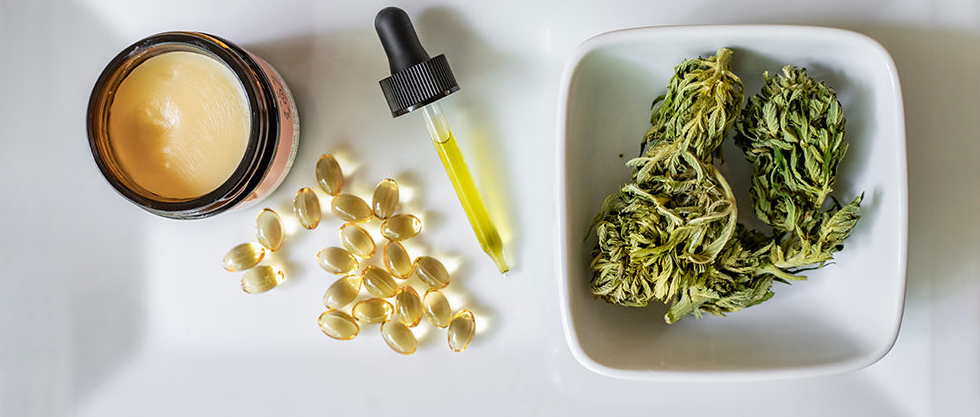We know many adults struggle with not getting enough sleep. You may even experience sleep problems yourself, and know others that suffer from the same ailment. In fact, according to the CDC, 1 in every 3 adults don’t get enough sleep, even though a good night’s sleep is critical for good health and overall wellbeing.
It’s a problem of epidemic-sized proportions that researchers have grown increasingly more concerned about over the past three or four decades. They’ve observed the average total sleep that individuals are able to obtain each night has steadily continued to decrease.
Across the world, we observe that insufficient sleep is linked to seven of the 15 leading causes of death. As such a vital function, 33% of adults being plagued with the inability to get enough sleep is considered a public health epidemic.
A noncommunicable disease, experts aim to formulate a solution to help individuals get the quality of sleep they need. CBD, as well as melatonin, have long since been studied as aids that can potentially stimulate sleep and improve overall sleep quality.
But how does CBD and melatonin help with sleep?
In this guide, we cover everything you could want to know about CBD and melatonin. We hope this will also allow you to better understand why our CBD + Melatonin gel caps are so popular among our return customers, who’ve incorporated them into their nightly routine.
How Does Melatonin Help with Sleep?
Melatonin is a hormone that our brains already naturally produce in response to darkness. It helps with sleep by helping you keep track of your circadian rhythm’s timing. There are a number of ways your natural melatonin production may be inhibited or blocked in some way, including being exposed to light at night.
Even though it’s a natural hormone, we’re also able to utilize it as a supplement. Researchers have been studying melatonin’s potential as a treatment for sleep disorders for years. In fact, an evidence assessment yielded 35 randomized controlled trials observing melatonin’s efficacy for promoting healthy sleep.
Melatonin may help improve your overall quality of sleep, as well as help with a variety of other ailments or sleep disorders. An increase in the hormone may help with jet lag, delayed sleep-wake phase disorder (DSWPD), anxiety before and after surgery, and certain sleep disorders in children.
As for other sleep disorders, like insomnia, there’s just not enough strong evidence pointing to melatonin’s effectiveness or safety for chronic insomnia. It may mostly just benefit those looking for better quality of sleep overall.
Important Facts About Melatonin
The hormone that naturally occurs in our brain can affect people differently when distributed through a supplement. For example, some research indicates that melatonin may stay active in older people for longer than in younger people, leading to daytime drowsiness. We strongly recommend discussing with your physician any safety risks involved with you taking a new melatonin supplement.
How Does CBD Help with Sleep?
A large case series published in 2019 details the researcher’s findings for whether CBD has an effect on anxiety or sleep. Their objective was to help determine whether CBD does, in fact, improve sleep and/or anxiety.
The final sample consisted of 72 adults, and the findings were split between results for anxiety and results for sleep. Sleep scores, however, did improve within the first month for 48 patients, which is 66.7%, though it did fluctuate after that first month. However, CBD was well-tolerated in all but three patients, boasting an excellent safety profile.
Evidence in the study also indicated that CBD helps to stimulate, relax, and lower anxiety symptoms, which in turn can help a user sleep.
So, What Happens When You Combine CBD and Melatonin?
You end up with CBD + Melatonin gel caps that offer the best of both worlds when it comes to stimulating relaxation, sleep, and a better night overall. In fact, research indicates that CBD may work synergistically with melatonin. This makes sense given that melatonin is a naturally occurring hormone and CBD can disguise itself in the body as an endocannabinoid, another compound we naturally produce.
A part of our endocannabinoid system, CBD acting as a natural endocannabinoid is sure to interact with most other bodily systems. This is including ones that help regulate temperature, pain, serotonin levels, melatonin levels, and much more.
In conclusion, CBD and melatonin may likely have a large impact on helping you get some better sleep at night. While everyone is different and our gel caps don’t act as a treatment or cure for anything, we have seen what it can do for countless other users already. CBD and melatonin can be beneficial on their own, but in combination, work to truly help you where you need it most.
